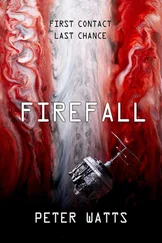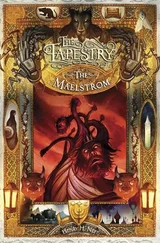But maybe Burton could have performed better. Maybe Burton knew it.
Burton had never much liked him, Lubin knew. He wasn't quite sure why. Of course, you don't inject Rwanda 11into a man's cells without expecting some increase in the usual alpha-male head-butting responses, but dispassion was a trait even more valued than ruthlessness; both of them had been tweaked for enhanced self-control even more than for the euphemistic necessary steps .
Lubin shrugged off the challenger and concentrated on the challenge. At least Chicago narrowed the options somewhat. Still not enough to catch Clarke until she made her move. The simple geometry of πr 2saw to that: double your search radius and effectiveness dropped by a factor of four. The waterfront was the bottleneck; wherever Clarke was now, that was where she'd be heading. She'd be running into opposition that increased exponentially as she approached that target, the flip side of inverse-square. Most of his people, Lubin knew, expected to take her out before she even saw the water.
He wasn't so sure. Clarke had none of the special skills and training that armed the least of her enemies, no botflies or talking guns, but she had something. She was smart, and she was tough, and she did not behave like a normal human being. Pain didn't seem to frighten her at all.
And she hated , more purely and perfectly than anyone Lubin had ever known.
She also had half of Maelstrom backing her up. Or had until recently, anyway. Lubin wondered if she'd grown used to being so unaccountably lucky. Had she started to believe her own PR, had she begun to think herself invincible? Did she know yet that she was back on her own?
Hopefully not. Anything that built her confidence worked in Lubin's favor.
Burton still didn't think she'd risk running the gauntlet. Burton wanted to descend from on high and impose martial law, shut that fucking sprawl down , right to the rivets, search room by room until the next millennium if that's what it took. Burton had no patience and no subtlety. No appreciation for πr 2. You don't catch fish by chasing them around the ocean with a net; you set the net where you know the fish will come, and you wait.
Of course, Burton didn't think this particular fish would come to the net. She wasn't an idiot. All she had to do was hang back and wait them out. It was a plausible enough line of reasoning, if you didn't know what Lubin knew.
If you didn't know that Lenie Clarke, quite simply, was homesick.
The lost distant abyss was an ache inside of her, and if Lake Michigan was a poor imitation of that world, at least it was an imitation of some kind. No smokers, no crystalline hot-and-cold running seawater, no glowing monsters to light the way—but fifteen atmospheres, at least. Darkness and cold, if you stayed near the bottom. Sheltering murk and currents enough to convect away any telltale heatprint. It might be enough, Lubin knew.
He knew that Lenie Clarke's desire would drive her along the straightest line she could manage. He'd known it from the moment he'd seen the records of that anomalous little outbreak in the Cariboo woods. A patch of alpine forest even deader than the norm. Something that had once been a man, curled protectively around something else that had once been a little girl. The crews hadn't checked the lake at all, they'd simply burned the area the way they'd burned all the others. It was only when Lubin had insisted—driven by his belated review of the story so far —that they'd sent back an ROV and surveyed the bottom. It was only then that anyone noticed the cobble and deadwood kicked into violent disarray fifty meters down, in a place where the largest inhabitants had been insects. As if something had dropped to the bottom and found it hopelessly wanting, clawed and pounded against bedrock as though driven to tunnel to the core of the earth itself. When Lubin had seen that telemetry, he'd known.
He'd known then, as he knew now, because he felt exactly the same way. Lenie Clarke had been a fish out of water for too long; nothing in Burton's arsenal would scare her off. She was coming.
And if those towering black anvils advancing from the south were anything to go on, she was bringing the wrath of God along for the ride.
* * *
Maybe she planned it that way , he mused. Maybe she summoned the storm the same way she summoned the quake.
It was easy to indulge in the legend, even tempting. But you didn't have to invoke sorcery to explain the thunderheads marching on Chicago; violent storms had been the spring norm for twenty years or more in these parts. Just another long-term surprise hatched from that chaotic package of cause-and-effect called climate change .
It had actually proven beneficial to certain aspects of the economy. The market for shatterproof windows had never been stronger.
If she hadn't conjured the elements, though, she'd at least been smart enough to use them. Perhaps she'd been holding back, digging her heels in against that relentless pull of dark water, until the weather was perfectly poised to cast a wrench into the machinery.
All for the better, then. It would give her greater confidence in her own success.
The cockpit intercom beeped in his ear: "Front's coming in too fast, sir. We'll have to either get above it or set down."
"How long?" Lubin asked.
"Half hour, tops." Outside, the sky flashed stark white. An avalanche rumbled faintly through the deck.
"Okay." Lubin magged visual. Three hundred meters beneath him, Lake Michigan was a heaving gray cauldron of scrap metal. There were a dozen stealthed transports between the lifter and the lake, their Thayer nets set to obliterative countershade . Lubin could pick them out if he tried; the chromatophores lagged a bit when mimicking fast fractals. As far as any civilian would be able to tell, though, the lifter had local airspace all to itself.
"The dolphins are down," Burton reported from across the compartment. "And we've got a bad storm-sewer monitor on South Aberd—"
Lubin cut him off with a wave of the hand: a white diamond icon had just appeared on the tabletop. A second later his comlink beeped.
"West Randolph," someone reported from the depths of Chicago. "Just past the river. Moving east."
* * *
They'd strung mist nets at strategic locations along the Chicago River, in addition to the usual anti-exotic electricals; Clarke had already ridden a river past one dragnet, and there was a chance she'd try it again. No such luck, though. This sighting was on the wrong side of those barricades. A botfly had snapped an aura completely inconsistent with the outside accessories of the woman who'd worn it. The doorway she'd entered led down into a half-empty commercial warren with a hundred access points.
Lubin realigned his pieces on the way in. Two of the choppers dropped to within spitting distance of the waves, each giving birth to twins; minisubs like finback calves, spacing themselves in an arc two kilometers off the waterfront. Each sub, in turn, birthed a litter of snoops that arranged themselves into a diffuse grid from surface to substrate.
The other choppers touched down from Meigs Field to the Grand Avenue docks, disgorged their cargo, and hunkered down against the oncoming storm. The command lifter came in behind them, pausing fifty meters above the seawall; Lubin slid down inside an extensible tube that uncoiled from the lifter's belly like an absurd proboscis. By the time the huge airship had wallowed away, a command hut had been set up at the foot of East Monroe.
Lubin braced against the rising wind and looked over the edge of Chicago's new seawall. The streaked gray precipice rose smoothly to the railing. The grated mouths of storm sewers punctuated the revetment at regular intervals, drooling insignificant trickles of wastewater. Each opening was twice as high as a man. Lubin ballparked the scale and nodded to himself: the weave of the grillwork was easily tight enough to keep anyone from squeezing through.
Читать дальше









